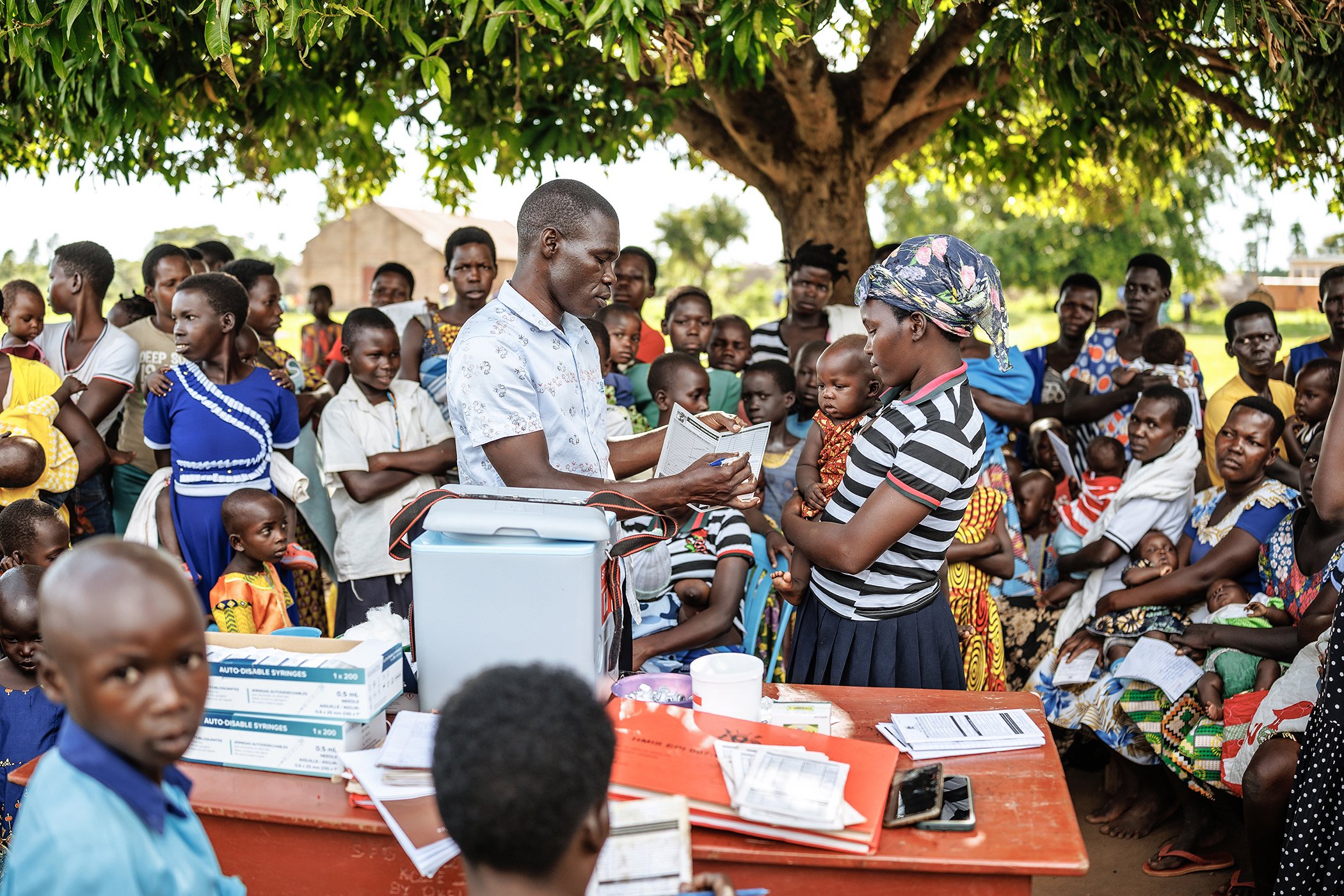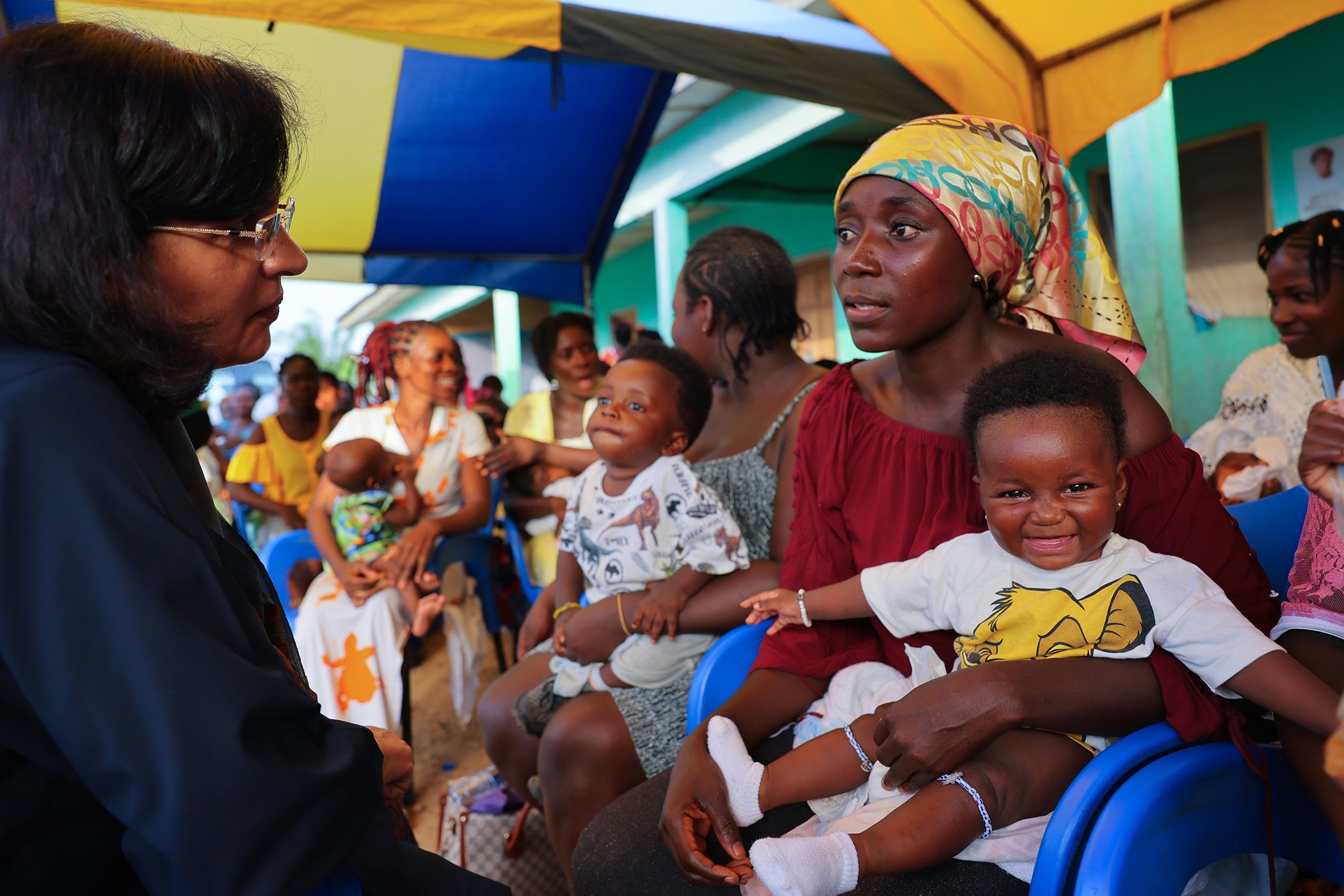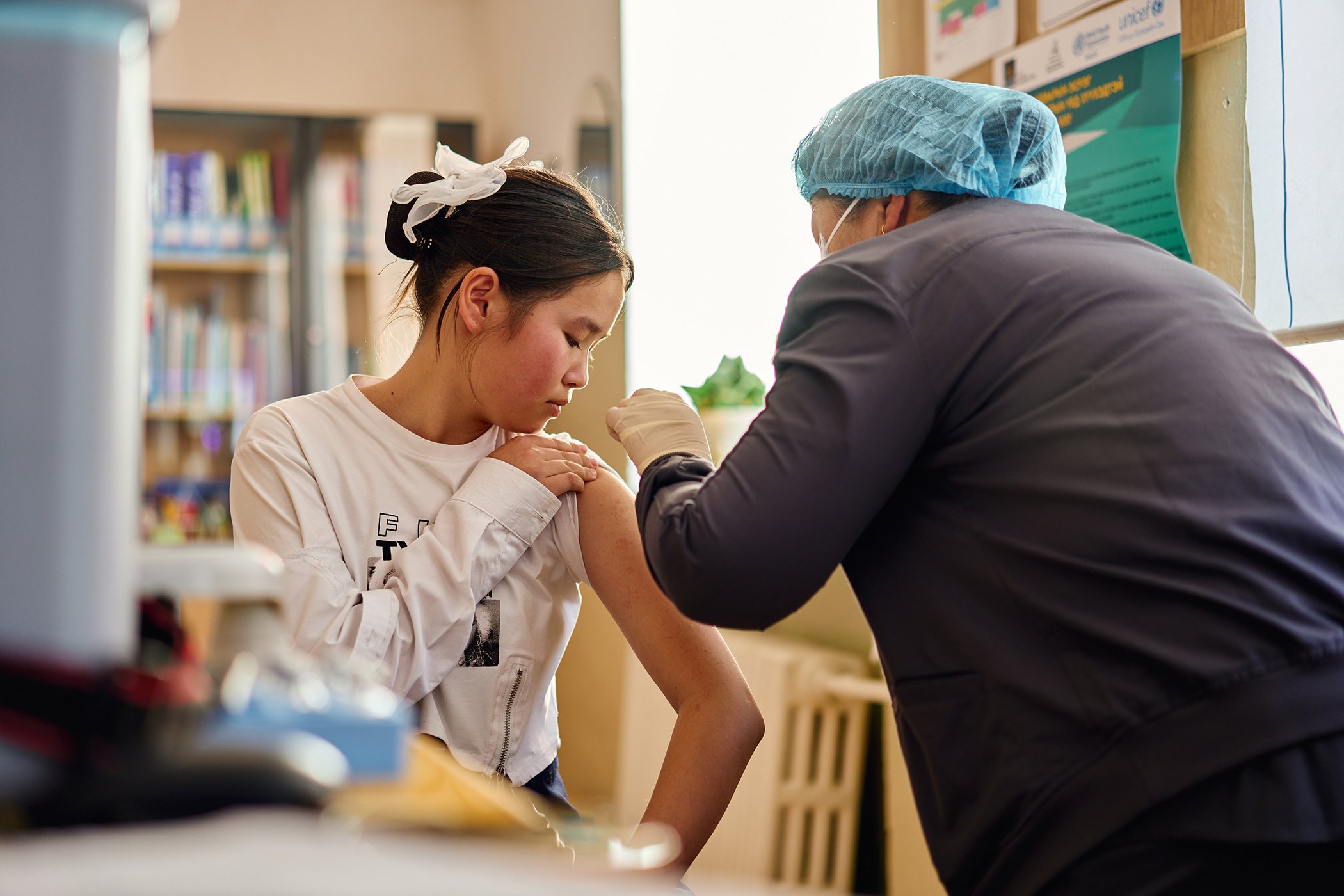Picture a world without Gavi, the Vaccine Alliance. Millions of children wouldn't live to see their fifth birthday. Diseases like polio and measles would paralyze thousands. Cervical cancer would remain a silent killer of women and girls in many regions. Malaria, a mosquito-borne disease, would claim thousands of lives each year across Africa.
This could become our reality if the support for vaccine equity disappears, leaving those who need these lifesaving vaccines most behind.
Since 2000, Gavi has helped vaccinate over one billion children in over 78 lower-income countries, saving nearly 19 million lives and preventing an estimated 2.7 million deaths.
These numbers aren’t just statistics — they represent lives saved and a profound shift in the trajectory of global health. It is safe to say that the Alliance has been relentless in its pursuit of protecting vulnerable communities from vaccine-preventable diseases.
At its core, Gavi’s mission is about equity — ensuring every child gets a fair shot at a healthy life, no matter where they live. And that mission continues today, as Gavi’s next phase focuses on scaling up immunization programs, introducing new vaccines into its portfolio, and strengthening country’s health systems through deeper partnerships.
Here are some of the vaccine-preventable diseases the Alliance is helping countries tackle head-on.
 A health worker explains to a mother how the malaria vaccine is administered during outreach in the Apac District in Uganda in April 2025. Uganda has become the 19th African country to introduce the malaria vaccine into its routine immunization program.
A health worker explains to a mother how the malaria vaccine is administered during outreach in the Apac District in Uganda in April 2025. Uganda has become the 19th African country to introduce the malaria vaccine into its routine immunization program.
Malaria Vaccine: The Watershed The World Needs
After three decades of research, the world now has a malaria vaccine, and Gavi is helping roll it out where it’s needed most.
In 2021, the World Health Organization (WHO) approved the first-ever malaria vaccine, RTS (RTS/AS01). By late 2021, Gavi committed an investment of $ 155.7 million to support the malaria vaccine introduction, procurement, and delivery for Gavi-eligible countries in sub-Saharan Africa between 2022 and 2025. Cameroon became the first country to launch a nationwide malaria vaccination campaign in 2024, with other countries set to follow in 2025.
Gavi is also backing R21/Matrix-M, a more affordable and scalable second malaria vaccine.
The malaria vaccine marks a turning point in the fight against malaria, offering a real chance to save hundreds of thousands of lives, especially among children under five in the most affected regions. It also brings the promise of easing the heavy economic and social toll malaria places on vulnerable communities.
Tuberculosis Vaccine: The Breakthrough After a Century of Struggle
Tuberculosis (TB), one of humanity’s deadliest infectious diseases, is caused by Mycobacterium tuberculosis, primarily attacking the lungs. Worldwide, TB claimed the lives of 1.25 million people in 2023 alone.
While the century-old Bacillus Calmette-Guerin (BCG) vaccine protects millions of children, its efficacy wanes in adolescence and adulthood. This age group is responsible for the bulk of TB infections and disease transmission.
Today, there is a new generation of TB vaccines that could protect all age groups and block transmission entirely. Among these promising TB vaccines is the M72/AS01E (M72) candidate vaccine, which is of particular interest to Gavi because of its potential to receive WHO prequalification by 2030. Gavi is also interested in other TB vaccine candidates like VPM1002 and MTBVAC, which are in advanced trials and could offer new ways to boost immunity.
Respiratory Syncytial Virus (RSV): The Next Frontier
Respiratory Syncytial Virus (RSV) is the leading cause of severe respiratory infections in children under five. This virus primarily affects children in low- and middle-income countries, where healthcare access is limited, and after malaria, it is the second-leading cause of mortality in infants globally.
As with malaria and TB, breakthroughs are bringing RSV control with reach. Maternal vaccines and long-acting antibody treatments are now in advanced trials, offering strong protection for newborns. With the FDA already approving a maternal RSV vaccine, the focus has shifted to widescale deployment. These solutions hold the potential to cut child mortality rates and protect vulnerable infants everywhere.
 Gavi CEO Sania Nishtar speaks with a mothers at the Ominako Community-Based Health Planning and Services (CHPS) facility in the Eastern Region of Ghana, on May 6, 2025.
Gavi CEO Sania Nishtar speaks with a mothers at the Ominako Community-Based Health Planning and Services (CHPS) facility in the Eastern Region of Ghana, on May 6, 2025.
Beyond the Jab: Strengthening Health Systems
Gavi’s work goes beyond delivering vaccines. While they are critical, delivering them effectively depends on the strength of national health systems.
To ensure these efforts translate into lasting impact, Gavi provides targeted financial support that helps countries procure vaccines at affordable prices and strengthens their healthcare delivery networks. This support model has helped countries like Sri Lanka successfully move beyond Gavi’s financial support. Sri Lanka graduated from needing Gavi support in 2016 and continues to achieve strong vaccination outcomes independently.
Also, through its Partners’ Engagement Framework, Gavi collaborates with governments and local actors to strengthen cold chain logistics, disease surveillance, and frontline workforce capacity.
The goal? Build health systems that can withstand pandemics, conflict, and climate shocks from the ground up, particularly in the most vulnerable regions of the world.
What Comes Next
Since 2012, Gavi has supported the introduction of HPV vaccines in 38 countries, immunizing more than 27.3 million girls by the end of 2023. This effort is projected to prevent over 605,000 cervical cancer deaths, a giant step towards health equity for women and girls around the world.
But Gavi’s next strategic period is even more ambitious. The Alliance is rolling out its broadest ever portfolio of life-saving vaccines, adding new breakthrough vaccines such as Mpox, Hepatitis E, and Dengue, to ensure those who need them the most can reap the benefits.
As new diseases emerge and old ones resurface, the world needs trusted allies who can adapt quickly, coordinate globally, and act locally. Gavi’s track record shows what’s possible when governments, businesses, civil society, and communities unite behind a shared mission: preventing suffering at scale.
But the work is far from done.
Millions still lack access to lifesaving vaccines, health systems remain fragile, and misinformation continues to spread. As the climate crisis intensifies, so too does the risk of new and re-emerging disease threats.
Gavi’s work is more urgent than ever, but it can’t happen without funding. As part of its 2021–2025 strategy, Gavi relies on contributions from donor countries to protect millions. The United States' proposed funding cut — around $300 million annually — raises the stakes even higher. Pulling back now would put millions of lives at risk.
Your voice matters. Help put vaccine equity and global health on the agenda. Sign our petition and join thousands of others in calling for critical funding that ensures everyone, everywhere, has a fair shot at a healthy future.
 A young student receives the HPV vaccination during a campaign at her school in Altanbulag, Mongolia in 2024.
A young student receives the HPV vaccination during a campaign at her school in Altanbulag, Mongolia in 2024.